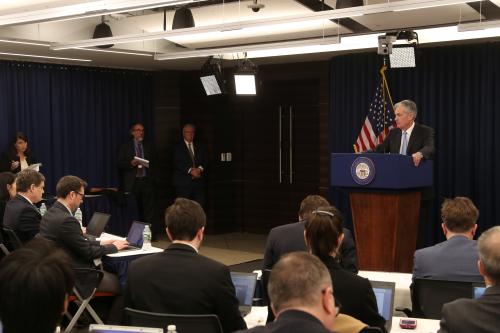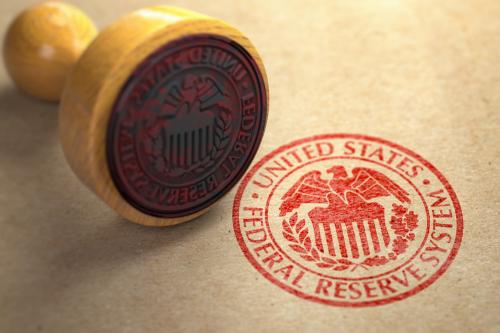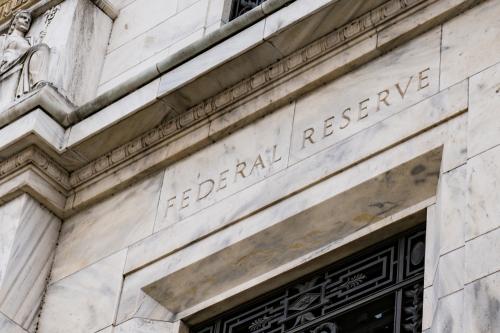Brookings Senior Fellow Donald Kohn, a former Federal Reserve vice chair who, according to news reports, is on a short list of candidates to replace Fed Chairman Ben Bernanke, spoke at a Brookings event on macroprudential policy this week.
Considering the 2008 financial crisis, Kohn described the value of such policy, a regulatory tool designed to reduce the overall risk in the financial system by viewing it as a whole, rather than focusing on individual firms:
The attention to macroprudential policies [is] potentially a very useful reaction to the crisis. …. many central banks had vague responsibilities for financial stability … but they didn’t have the instruments to execute on macroprudential policy and produced a lot of fancy, glossy financial stability reports without much ability to follow through on what they were reporting on.
Regarding the financial crisis he said:
…. no one had the responsibility or the tools or the decision structure to execute, to counter that procyclicality in the financial system and build resilience to the inevitable cyclical over-shooting in debt and asset prices. Now we have those tools and structures.”
In his remarks, Kohn stated that “accountability for financial stability is difficult” and that “the political pressures could be more intense on macroprudential policy than on monetary policy so there is a need for an independent authority to set the macroprudential policy, but then holding that independent authority accountable is going to be more difficult.”
He also looked ahead to ways that the private sector could help preserve financial stability:
How can we get the private sector to help preserve financial stability? How can we strengthen market discipline? … The private sector by itself can’t take full account of the externalities of financial instability … but I think we can get the private sector to work better with the regulators in enforcing both microprudential – both safety and soundness of individual institutions – and safety and soundness of the whole system.”
Kohn says that we need to address the too big to fail issues as well as transparency “to even have a chance at this.”
See also Donald Kohn’s recent paper on “Unconventional Monetary Policy: Moving Toward the Exit in the U.S” (pdf) and event moderator Doug Elliott’s paper, “Lessons for Macroprudential Policy from American History.”
Washingtonpost.com’s Wonkblog has additional analysis of Kohn’s speech.
The Brookings Institution is committed to quality, independence, and impact.
We are supported by a diverse array of funders. In line with our values and policies, each Brookings publication represents the sole views of its author(s).




Commentary
Donald Kohn: How Can We Preserve Financial Stability?
September 19, 2013